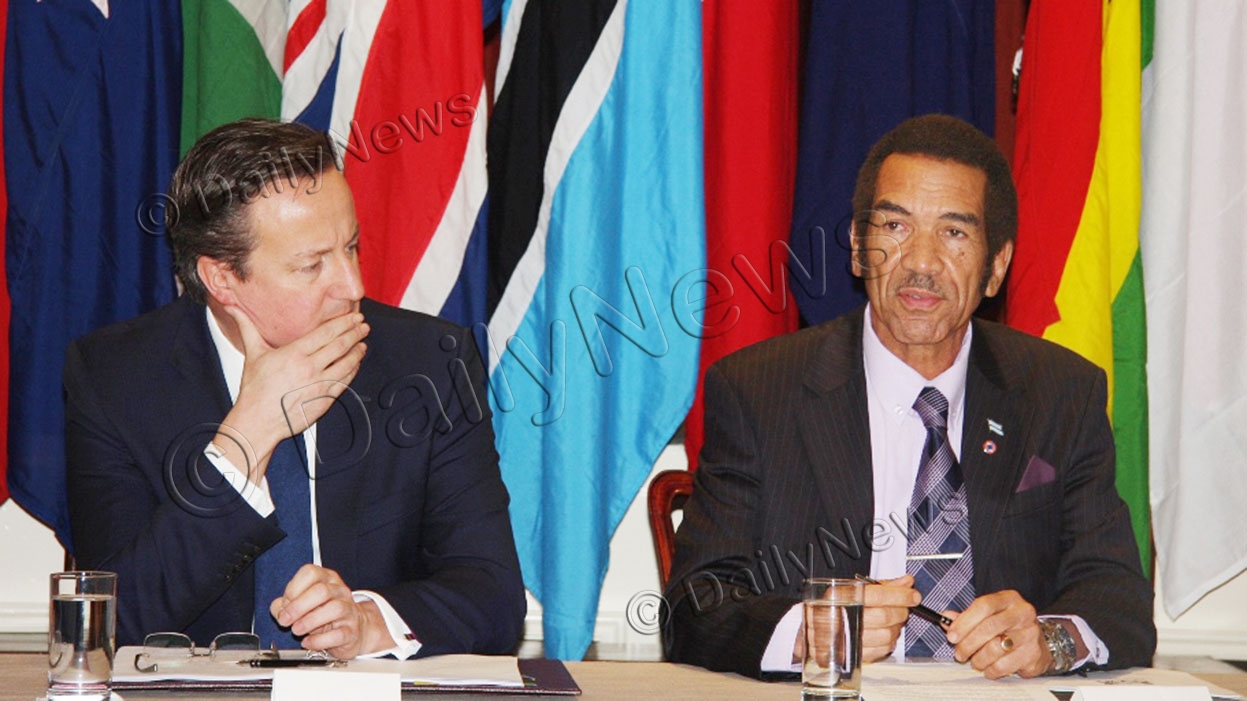Corruption fight needs political will
29 Nov 2015
There is need for political will to lead the fight against corruption at all levels, President Lt Gen. Seretse Khama Ian Khama has said.
Briefing a meeting on anti-corruption on the sidelines of the Commonwealth Heads of Government (CHOGM) in Malta on Saturday November 28, President Khama said it was urgent to have transparent and accountable processes, strong legislation, dedicated anti-corruption units and courts in order to reverse the negative effects of corruption.
President Khama, who co-chaired the meeting with British prime minister, Mr David Cameron, said corruption was real and had devastating impact on developing countries.
“It has reversed or stagnated developments and economic growth. In some places, it has become a way of life, exacerbating poverty and diverting much needed resources. It is not limited to government, but it is in all sectors of the economy, including in the private sector and sports organisations,” he said.
For Botswana, the President said, the country had committed to zero tolerance for corruption as evidenced by its continental and world rankings.
“I look forward to engagement with yourselves in our endeavour to root out this evil and to collectively apply our minds on what can be done to deal with this scourge,” he said.
Meanwhile, President Khama noted that the Commonwealth also had a number of priority challenges to combat alongside the rest of the international community, which included climate change, poverty, terrorism as well as corruption.
Leaders at the meeting also looked at benefits from further efforts to increase transparency, particularly around true or beneficial ownership of international companies as well as extractive industries and public contracting.
They also discussed the need for enhanced collaboration among law enforcement agencies to build trust as well as improve flow of information and facilitate joint investigations.
The meeting also looked at how to address the problem of impunity for those widely known to be deeply involved in corrupt activities, but where criminal investigations might be difficult or slow to progress.
To that effect, they looked at possibilities of having more pro-active and better coordinated approaches such as denying entry to the corrupt or pooling information required for contract debarment.
The meeting further discussed steps governments could take to tackle the link between corruption and damage to the environment, including de-forestation, pollution or wildlife crime.
Again, the meeting discussed how governments should respond to the wave of corruption scandals affecting international sport federations and possibilities of encouraging them and their sponsors to adopt new standards of transparency and good governance.
Tackling the link between corruption and terrorism was also discussed not only as a cause of radicalisation, but also as an enabler for terrorist groups once formed and if there were required responses essentially the same as for other kinds of corruption or any specific steps that needed to be taken and focused on terrorism. ENDS
Source : BOPA
Author : Thelma Khunwane
Location : MALTA
Event : Media briefing
Date : 29 Nov 2015




